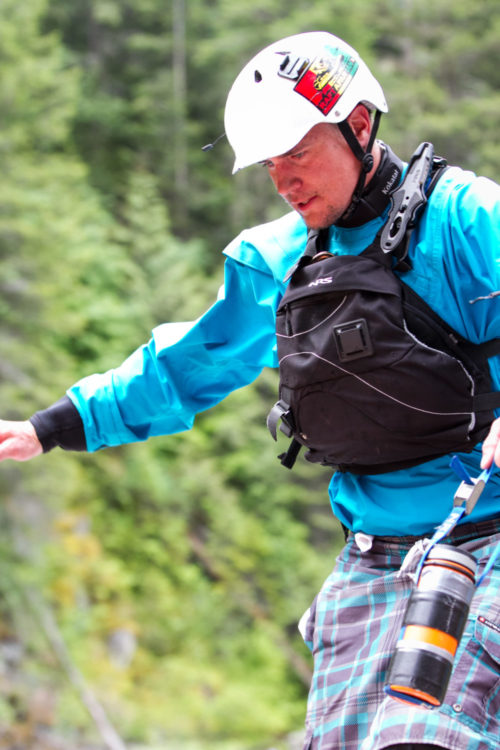
BE A HERO: Master the art of camp cooking
At the end of a long day on the river you’re gonna need to put some food in your belly. Camp cooking can seem like a chore at times but the payoff is well worth it. You can choose cheap and easy or full gourmet. Sometimes the simplest meals can be the best.
Prep work can be a camp cook’s best friend. Working in your home kitchen with the proper tools not only cuts down on cleanup but can move your dinner time hours ahead. Pre-cooking tough vegetables like carrots or potatoes frees up more precious campfire and cocktail time.
Cooking on the open fire will always add to the flavor but you can’t just throw a meal in the coals and expect it to work out. Potatoes wrapped in foil and poked for venting will take hours, while corn (still in the husk) soaked in the water will be ready in 20 minutes. Plan ahead so you’re not eating raw veggies with an overcooked steak.
The dutch oven is a tool all river rats should be familiar with. It could be breakfast, brunch or dinner. The dutch is the perfect outdoor cooking tool. It’s a skillet and a pot, and anything you cook in an oven can be prepared in the dutch. Don’t be afraid to experiment with recipes. It takes a couple meals to learn your dutch and cooking environment, but a basic rule of thumb for heat is to take the size of your dutch and double that number for coals. Then pull four coals and place on top. For example, if you cook in a 12-quart dutch you will need 24 coals. Eight on bottom and 16 on top. When in doubt, wait until you catch your first smell of the food and load the bottom coals on top. If you’re looking, it’s not cooking – so let the heat do its thing! Keep the lid closed!
Washing the dishes is the most important part. No one wants to get sick. It’s super easy to keep your kitchen clean and ready. The three-bin wash system has been used for years on many multi-day trips and is based off the same wash system seen in five-star restaurants. Hot water is your best friend. It’s nice on the hands and cuts grease down easily. Sloppy meals like chili should use a four-bin system with two soapy (hot water), one rinse (cold or tepid water), and the last should be cold with a cap-full of bleach in it. Dishes should be air dried and packed clean in the morning. Dutch ovens should be boiled with clean water with no soap, scrubbed clean and oiled for the next use. No soap ever on your dutch oven! Dish water then needs to be disposed of properly depending on your area.
The most important thing to remember is the camp cook is the hero. Even a PB&J is delicious when you’re miles from home, but a true home-cooked meal will keep you and your crew going all day long!

